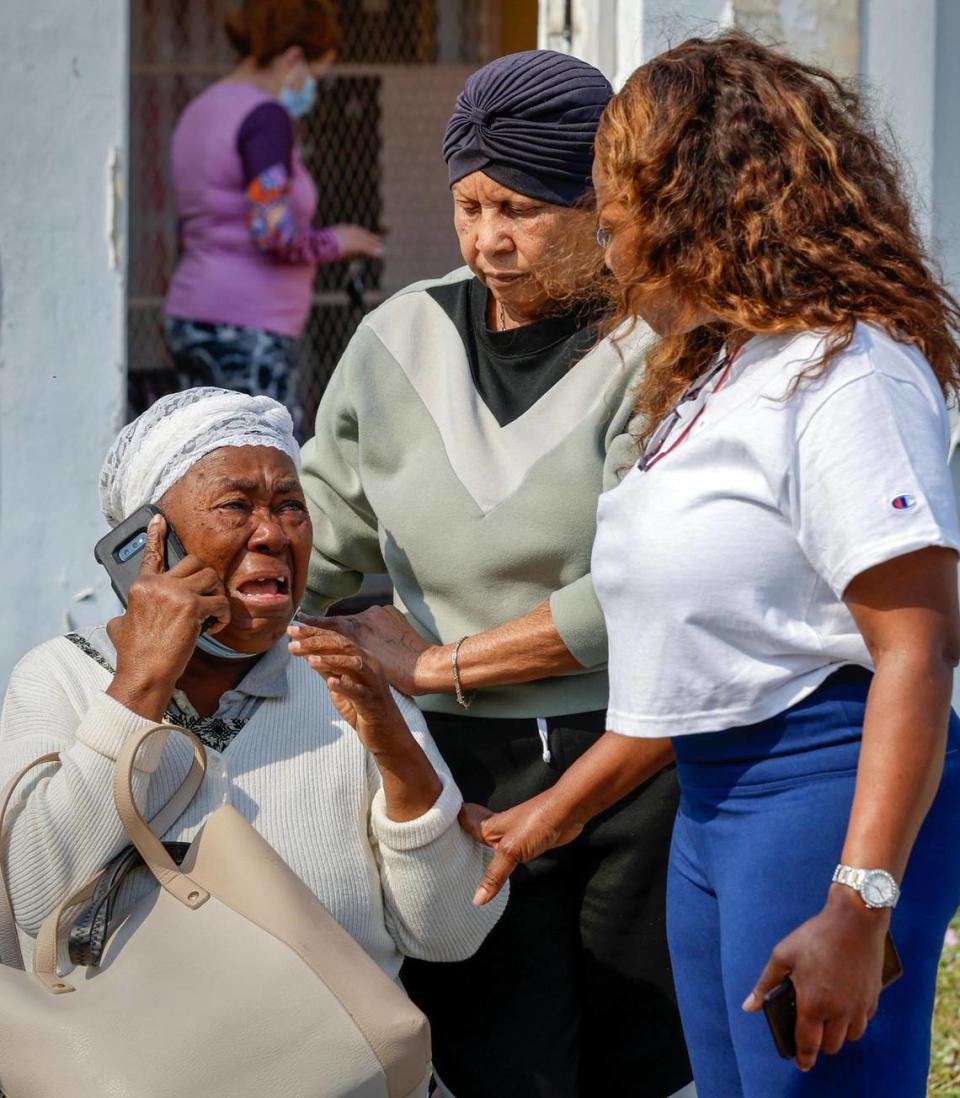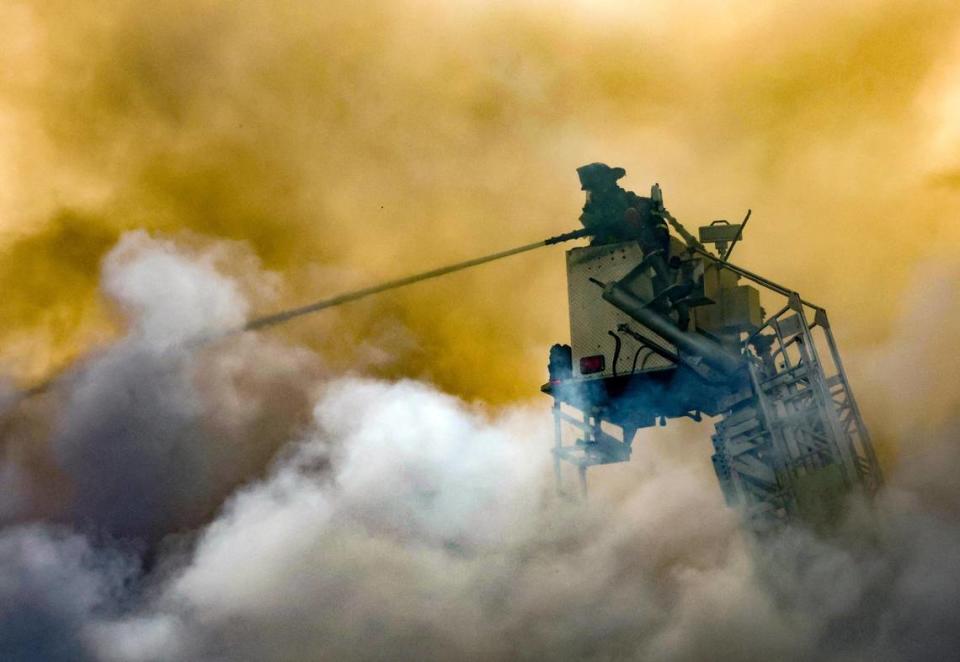Did a fire kick you out of your home in Miami-Dade? Here are 3 things you should know
When a fire forces you out of your home, it can be overwhelming to navigate the healthcare system while trying to find emergency shelter, food, temporary housing — and dealing with your insurance company.
U.S. fire departments responded to an average of 346,800 home structure fires per year from 2015 to 2019, according to the National Fire Protection Association. These fires, the association says, caused an annual average of 2,620 civilian deaths; 11,070 civilian fire injuries; and $7.3 billion in direct property damage.
After Saturday’s major apartment fire in Miami Gardens that displaced over 100 people, here’s what you should know if you ever find yourself without a home after a fire.
Medical care
After possibly losing your home, you could also be in for some pretty steep costs if you are taken to a hospital.
For starters, ambulance rides can be a financial gamble for some families. According to a 2020 study, 79% of patients who take a ground ambulance could end up paying an average total of $550.
At the hospital, you can accumulate thousands of dollars more in medical debt. And according to healthcare.gov, the average cost of a 3-day hospital stay in the United States is around $30,000.

READ MORE: More than 100 residents displaced by a major fire at a Miami Gardens condo building
But not everything is bad news.
There are several things that might help you navigate the healthcare system:
▪ Florida Patient’s Bill of Rights and Responsibilities says you can’t be denied emergency medical services, regardless of whether you can afford it or not.
▪ You can also review medical bills for errors by requesting an itemized receipt. And even when everything is correct, you may be able to negotiate a lower bill or a more affordable payment plan.
▪ Many hospitals also offer financial assistance if you don’t have healthcare insurance. Generally, to apply you may not qualify for state or federal assistance, and your family’s adjusted income must be less than 200% of federal poverty guidelines.
▪ If you don’t require emergency services, Florida law also says providers must give an estimate of costs before providing medical care.
Shelter, food and clothing
If your health needs are met, the next thing on your mind will be to find emergency shelter, food and clothing in Miami-Dade.
To inquire about these, you can call the American Red Cross 24/7 line at 1-800-733-2767.
For additional temporary housing services, including family shelters, and food pantries, survivors can also call The Salvation Army at 305-637-6700.

READ MORE: Here’s how to support residents displaced by major fire at a Miami Gardens condo building
Catholic Charities provides financial assistance and referrals to people in Miami-Dade, Broward and Monroe counties to prevent homelessness. It also offers rent and mortgage assistance, food vouchers and utility assistance. To contact Catholic Charities, call 305-573-3333 or email newlife@ccadm.org.
Miami-Dade County’s Office of Housing Advocacy may also be able to provide emergency rental assistance. For more information, call the Housing Advocacy hotline, available Monday through Friday from 8 a.m. to 5 p.m., at 786-469-4545.
Home insurance
After your basic needs have been met, the road to recovery continues with filing a claim with your insurance company.
To do that, you will need your policy number and a fire department incident report, Isidro Guillama, president of Pro Com Insurance, told the Miami Herald. It can also help your claim if you have photos of your home before and after the fire, according to Guillama.
Homeowners are often required by mortgage lenders to protect their residence in case of a fire, Guillama said. In a single-family dwelling, homeowners’ insurance can pay for damages made to the structure of the house as well as items like furniture, appliances and electronics.

If you are renting, Guillama said, the owner’s insurance will not cover damages to your personal property. To make up for your damaged belongings, and to pay for rent somewhere else until the unit is fixed, you need renter’s insurance.
“If [tenants] don’t carry renter’s insurance, then they would not have any coverage for their personal property that was damaged inside the unit,” Guillama said.
There is also a type of insurance that only applies to condos and apartment buildings.
The owners association’s property insurance should cover fire-related damage made to the common areas of the building, Guillama said. This includes damage to the structure, roof and windows.
“If the insured is looking for coverage inside their unit, then they would have to carry their own independent homeowner’s policy,” Guillama said. “That individual homeowner’s policy ... also covers them for loss of use ..., which in turn would pay for rental until the unit is fixed.”
Guillama added that many misunderstand what condo insurance covers and what it doesn’t.
“A lot of people are misled, or not explained to, or they assume that condo insurance is going to cover the interior of their unit, when ... it doesn’t,” Guillama said. “Anything (inside), including drywall, electrical, cabinetry, appliances and flooring, all that is going to be covered under a homeowner’s policy.”

 Yahoo Movies
Yahoo Movies 
